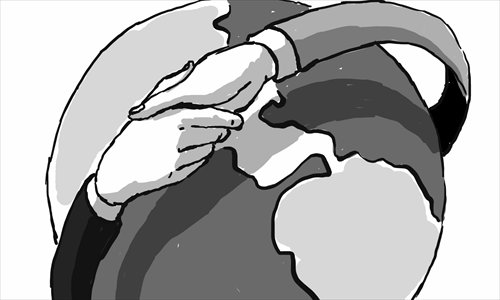China rapidly becoming primary player in post-war Central Asia

By Raffaello Pantucci and Alexandros Petersen
China is on its way to becoming the most consequential actor in Central Asia. This isn't a critical or a negative statement, but rather a reflection of a reality on the ground.
The heavy investments in Central Asian infrastructure and natural resources, the push to develop the Xinjiang Uyghur Autonomous Region, and China's focus on developing the Shanghai Cooperation Organization into an economic player are slowly reorienting Central Asia toward China. None of this means that China is aiming to become a regional hegemon, but unless it is willing to write off considerable regional investment, it is going to find itself needing to engage in regional affairs in a more focused manner.
And these actions are likely to be interpreted regionally as hegemonic. A potentially very prosperous corner of the world, Central Asia, is in an early stage of development that could easily be pushed by instability in a wrong direction. China needs to prepare herself to step in and help resolve matters.
First among the potential storm clouds on the horizon is 2014 and the Western withdrawal from Afghanistan. The forces left behind will have a very limited and focused mandate. Their duty will be to protect diplomatic and aid communities and to focus on ensuring that groups like Al Qaeda cannot reform in Afghanistan and pose a threat to US or European interests. Their focus will not be on what the Taliban are doing in general or the instability that they might foster regionally. After over a decade of war, the Western public is tired of Afghanistan and has little appetite for war.
This casts a question over what is going to happen in Afghanistan post-2014, right on China's border. China played a limited role in Afghanistan in the early years after the US invasion, but it has now invested considerable resources into the country that it will have to protect. It is also likely that instability in Afghanistan will have a knock-on effect into Central Asia, where China has even more investments. And all of this will end up having some sort of impact directly on Xinjiang, China's long underdeveloped border region.
The US is in a very different position. It has security concerns from Central Asia and Afghanistan, but these will be addressed by the forces left behind. Some US companies have investments in Central Asia, but these are nowhere near as crucial as those made by Chinese firms.
As former national security adviser Zbigniew Brzezinski put it, the US is "too distant to be dominant in this part of Eurasia." The reality is that the Pamir mountains are too high and the steppe too far away for the US to focus on the region.
China's ascendant investments in Central Asia are something that also stands in contrast to Russia's declining ones. This is a more complex picture, as Russia, for many of the same reasons as China, has a clear strategic interest in Central Asia. But it is no longer the regional hegemon that it once was.
Russia's power has been diluted by growing Chinese interest and Western attention paid to the region as a strategic launching pad into Afghanistan.
On the one hand, Russia realizes that it has to do something about security post-2014 and so is investing military loans to Kyrgyzstan and Tajikistan. But at the same time, its regional security organization, the Collective Security Treaty Organization, has lost one of its most important members, Uzbekistan.
Even more significant in some ways is the recent statement by Russian energy giant Gazprom that it needed to evaluate its position in Central Asia as it had noticed that the region's producers were "reorienting themselves toward China."
And while it is clear that Russia still has influence regionally, it is not Russian firms that are putting up buildings, laying down roads and rail or investing in rebuilding the underdeveloped region.
Russia may still exert considerable diplomatic influence and soft power in the region, but it is clearly not investing a huge amount in the region.
Instead, seen from the ground, the scope and range of Chinese investments is clear, and China is increasingly shaping itself to be the most consequential power in the region.
This reality may be unpalatable to China, but it is something that it cannot avoid.
China is increasingly reshaping Central Asia to becoming its backyard rather than Russia's and this will bring with it some regional responsibilities that China has not yet figured out how to address. China needs to formulate a proper strategy for Central Asia.
Raffaello Pantucci is a visiting scholar at the Shanghai Academy of Social Sciences and Alexandros Petersen is the author of The World Island: Eurasian Geopolitics and the Fate of the West (Praeger, 2011). opinion@globaltimes.com.cn